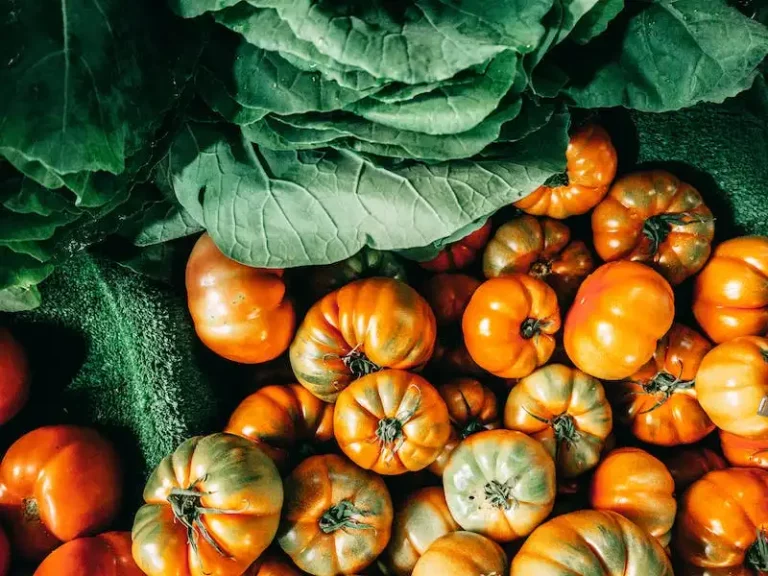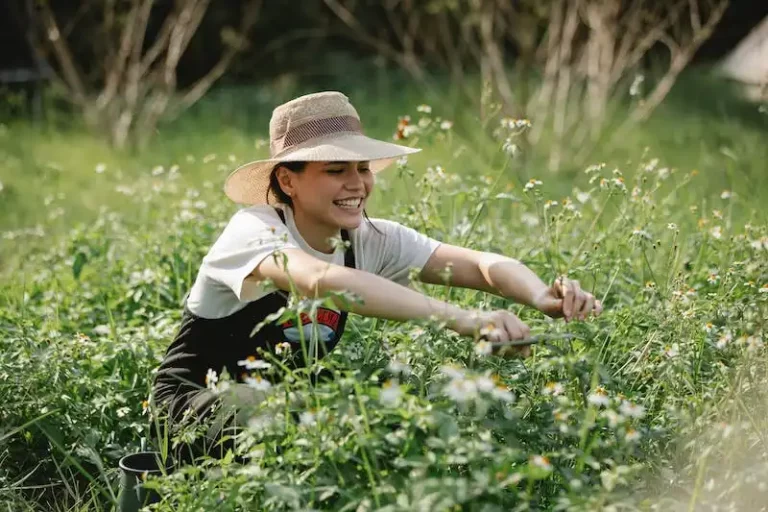If you’re a gardener, you know the joy of seeing tiny tomato seedlings emerge from the soil. These small plants hold the promise of juicy tomatoes, ready to be harvested and enjoyed. However, as the seedlings grow, they outgrow their initial pots and need to be rehomed to larger containers. This is where the process of potting up, or repotting, comes into play.
When should you repot your tomato seedlings? The answer is: as soon as they have their first true leaves. This usually happens about 10-14 days after germination. Waiting any longer may cause the seedlings to become leggy and weak. It’s important to give them more space to grow and develop their roots.
To repot your tomato seedlings, you’ll need some supplies, including larger trays or containers, potting soil, and a small gardening tool. Start by filling the new container with potting soil, making sure to leave about an inch of space at the top. Gently remove the seedlings from their current pots, being careful not to damage their delicate roots. Place each seedling in a hole in the new container and press the soil around it firmly. Water the seedlings thoroughly to help them settle in their new homes.
Repotting tomato seedlings is a crucial step in their growth process. By providing them with more space and nutrients, you allow them to develop stronger roots, stems, and leaves. This, in turn, will help them become more resistant to diseases like blight and produce a better harvest.
Remember to acclimate your repotted seedlings to their new environment. Gradually expose them to the outdoor temperatures and wind by moving them to a sheltered location for a few hours each day. This will help them adjust and grow stronger. Fertilize them regularly with a balanced plant food or organic fertilizer, following the instructions on the package.
In summary, potting up or repotting tomato seedlings is a necessary step in their growth journey. By choosing larger containers and providing proper support, you give them the space and resources they need to thrive. So grab your gardening tool, follow this helpful guide, and watch your tomato seedlings grow into strong, healthy plants that will eventually reward you with delicious, home-grown tomatoes.
How to Pot Up Your Tomato Seedlings
If you’ve been growing tomato seedlings, there will come a time when you need to pot them up into larger containers. This is necessary to promote healthy root growth and provide enough space for the plants to thrive. Here’s a 10-step process to guide you in potting up your tomato seedlings.
- Choose the right time: Pot up your tomato seedlings when they have developed their first true leaves. This is usually around 7-10 days after germination.
- Prepare your pots: Use containers that are at least 4 inches deep and have drainage holes at the bottom to avoid waterlogged soil.
- Get your potting mix ready: Fill the pots with a well-draining potting mix that is enriched with compost or organic matter.
- Water your seedlings: Before potting up, water your tomato seedlings thoroughly. This will make it easier to remove them from their current container without damaging the roots.
- Prepare the new pots: Dig holes in the new pots that are large enough to accommodate the roots of your seedlings.
- Transfer the seedlings: Gently remove the seedlings from their current container and place them in the prepared holes in the new pots. Be careful not to disturb the roots too much.
- Fill the gaps: Fill the gaps around the seedlings with potting mix, making sure to cover the roots completely. Firm the soil gently to ensure good contact with the roots.
- Water again: After potting up, water the seedlings thoroughly to settle the soil and remove any air pockets.
- Provide support: Tomato plants are known for their vigorous growth, so it’s best to provide support, such as trellises or stakes, to help them grow vertically and avoid leggy growth.
- Care for your seedlings: Place your potted tomato seedlings in a warm and sunny location, gradually acclimate them to outdoor conditions, and water them regularly.
Following these steps will ensure that your tomato seedlings have the best possible start and will grow into healthy, productive plants. Potting up is a helpful technique that allows you to provide more space and nutrients to your plants without the need for a bigger garden bed. Give it a try and enjoy the rewards of growing your own delicious tomatoes!
How When and Why You Should Pot Up Repot Tomato Seedlings
As a gardener, I am often asked about how, when, and why to pot up tomato seedlings. Potting up, also known as repotting, is an important step in the growth process of tomato plants. In this guide, I will explain why and how you should pot up your tomato seedlings.
Potting up tomato seedlings is necessary because it allows the plants to develop a stronger root system. When tomato seedlings are kept in small trays or pots, their roots can become root-bound, meaning they become tangled and crowded. By transplanting them into larger pots or beds, you give the roots more space to grow and spread out. This results in healthier and more robust plants.
To pot up tomato seedlings, start by selecting a pot that is at least 2 inches larger in diameter than the current container. You can choose from a variety of pot types, such as plastic pots or biodegradable ones made from peat or coconut coir. Make sure the pot has drainage holes to prevent waterlogging.
Before transferring the seedlings, prepare the potting mix by combining equal parts of compost, garden soil, and perlite or vermiculite. This mixture provides good drainage and nutrients for the plants. Fill the new pot with the potting mix about halfway.
To remove the seedlings from their current container, gently loosen the soil around the edges with your fingers. Then, hold the seedling by the leaves and gently pull it out, being careful not to damage the stem or roots. If the seedlings are root-bound, you may have to wiggle them out or even use a small tool to help pry them loose.
Once the seedling is out of the container, carefully tease apart any tangled roots. This will encourage them to grow outward in the new pot. Place the seedling in the new pot, making sure to keep the roots intact and spread them out. Add more potting mix around the seedling, pressing it firmly to eliminate air pockets.
After potting up the seedlings, water them thoroughly. This helps settle the soil and provides the plants with the moisture they need for proper growth. Place the pots in a location with bright, indirect light, and protect them from harsh winds or extreme temperatures.
As the seedlings continue to grow, they may need support in the form of stakes or trellises. This will prevent them from falling over and breaking under the weight of their fruit. You can also use tomato cages or DIY trellises made from bamboo or other materials.
Throughout the growing season, it’s important to care for the potted tomato plants by watering them regularly, providing adequate nutrition, and monitoring for any signs of pests or diseases. Tomatoes are susceptible to diseases like blight, so proper care and control measures should be taken.
By potting up your tomato seedlings, you are giving them the best chance to thrive and produce a bountiful harvest. Re-potting not only allows for stronger root systems but also gives you an opportunity to thin out weaker seedlings and choose the healthiest ones to nurture. With the right care and attention, your potted tomatoes will reward you with delicious fruits!
If you have any more questions about how, when, or why to pot up tomato seedlings, feel free to leave a comment below or check out our video guide on tomato care.
Why We Pot Up Tomatoes
When it comes to growing tomatoes, you’ll want to make sure you pot them up properly. The main reason for potting up tomatoes is to give the roots more room to grow, resulting in healthier plants and a higher yield.
When tomato seeds are first planted, they are usually started in seed trays or small pots. These containers can become crowded, causing the seedlings to become root bound. By re-potting the seedlings into larger pots, you allow the roots to spread out and develop fully.
Potting up your tomato seedlings also ensures that the roots remain intact. When transplanting tomato seedlings directly into garden beds, the roots can easily be damaged, leading to stunted growth and a lower chance of survival. By re-potting them first, you can carefully handle the plants without disturbing their root systems.
Another reason to pot up tomatoes is to control the growing environment. By growing tomatoes in pots, you have more control over factors such as temperature and moisture. You can easily move the pots to a sunnier spot or protect them from extreme weather conditions. This flexibility can result in stronger, healthier plants.
Potting up tomatoes also allows you to choose the supports for your plants. Whether you prefer using trellises, cages, or other types of support structures, you can set them up in the pots long before the plants need them. By doing this, you avoid damaging the roots when trying to add supports later in the growing season.
Additionally, potting up your tomatoes gives you the opportunity to add amendments to the soil. You can mix in compost, manure, or other fertilizers to provide the plants with the necessary nutrients for optimal growth. This is especially important if you plan on keeping the tomatoes in pots for an extended period of time.
In summary, potting up tomatoes is a crucial step in their growth process. Not only does it give the roots more room to grow, but it also keeps them intact and allows for better control of the growing environment. By potting up your tomato seedlings, you’ll give them the best chance to thrive and produce a bountiful crop.



